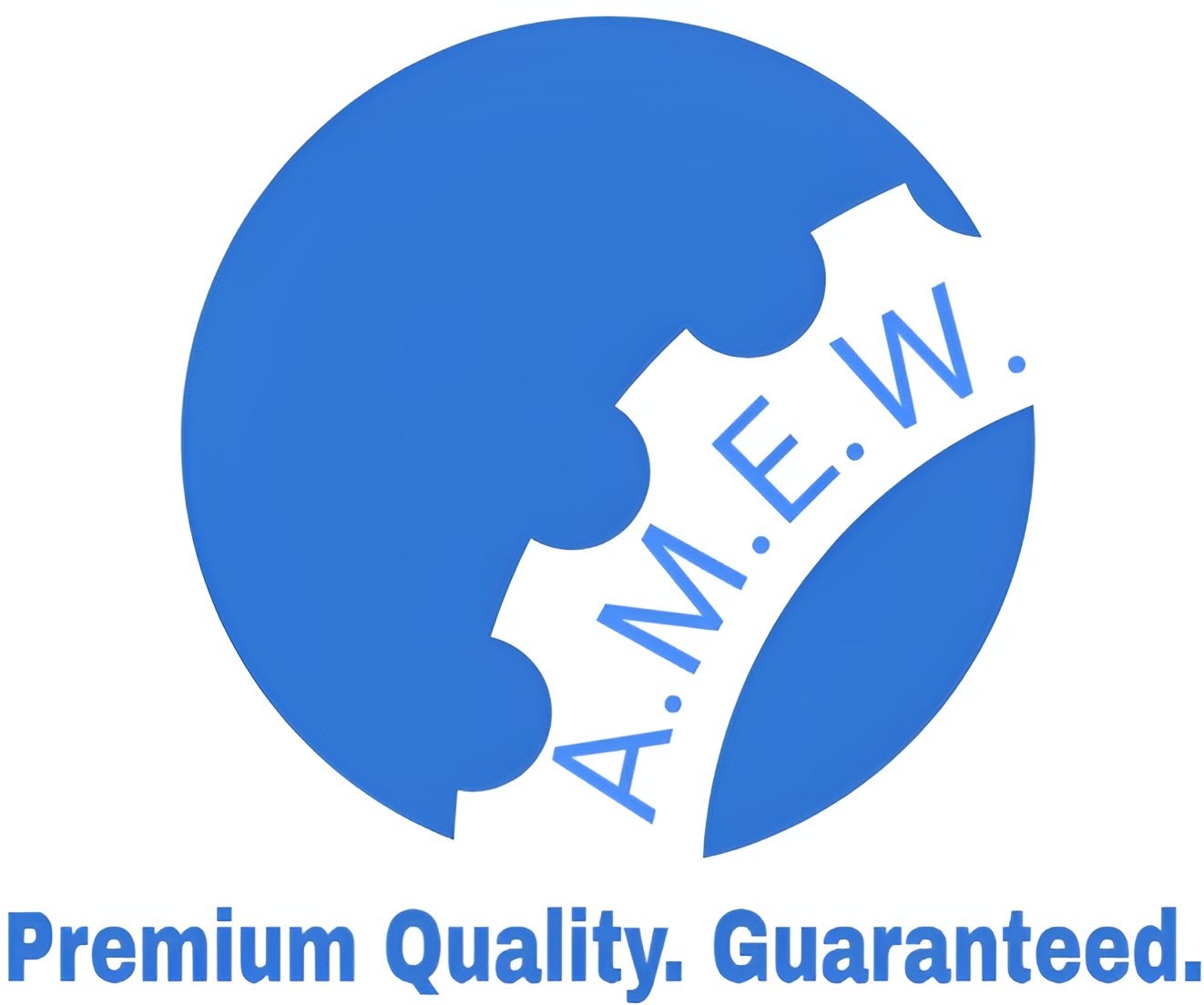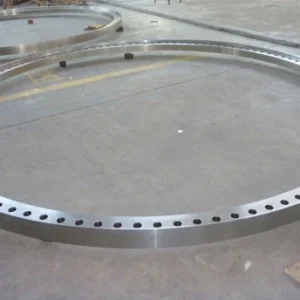Description
Titanium Forging
Titanium forging is a high-performance metalworking process used to manufacture strong, lightweight, and corrosion-resistant parts for various industries. Titanium’s unique properties make it ideal for critical applications where weight, strength, and resistance to extreme environments are paramount. In this SEO-optimized guide, we’ll explore the titanium forging process, its applications, key benefits, and various grades of titanium used in forging.
What is Titanium Forging?
Titanium forging involves the process of shaping heated titanium alloy into specific components using compressive forces exerted by hammering, pressing, or other forging techniques. The forging process aligns the grain structure of the titanium, enhancing its mechanical properties, including strength, toughness, and fatigue resistance.
Key Characteristics:
- High Strength-to-Weight Ratio: Titanium is strong yet lightweight, making it an excellent choice for aerospace, automotive, and defense industries.
- Corrosion Resistance: Titanium’s natural oxide layer protects it from corrosion, especially in harsh environments like seawater and chemical processes.
- Biocompatibility: Titanium is non-toxic and biocompatible, making it suitable for medical implants and surgical instruments.
- Temperature Resistance: Titanium can withstand high temperatures without losing its strength, which is critical in aerospace and power generation applications.
Applications of Titanium Forging
Titanium forgings are used in a wide range of industries that require components capable of performing in extreme conditions. Below are some of the primary industries and their applications:
1. Aerospace Industry:
- Aircraft Engine Components: Forged titanium is used in critical parts like turbine blades, discs, and engine casings because of its lightweight yet durable nature, which helps improve fuel efficiency.
- Airframe Components: Titanium’s high strength-to-weight ratio makes it ideal for structural parts such as landing gear, wing spars, and fasteners.
2. Medical Industry:
- Implants and Surgical Instruments: Titanium is widely used for orthopedic implants, dental implants, and surgical instruments due to its biocompatibility and resistance to corrosion in the human body.
- Prosthetics: Forged titanium is ideal for prosthetic devices because of its lightweight and strength, offering enhanced mobility and durability.
3. Automotive Industry:
- Performance Components: In motorsports and high-performance vehicles, forged titanium is used for parts such as valves, connecting rods, and exhaust systems, reducing vehicle weight and increasing efficiency.
4. Marine Industry:
- Subsea Components: Titanium’s corrosion resistance to seawater makes it ideal for marine applications such as propeller shafts, heat exchangers, and hull components for submarines and offshore platforms.
5. Power Generation Industry:
- Turbine Parts: Titanium forgings are commonly used in power generation turbines where high temperatures and stress demand materials that maintain their strength and durability over time.
6. Chemical Processing:
- Heat Exchangers and Pressure Vessels: Titanium is often used in chemical plants for handling corrosive substances, thanks to its excellent corrosion resistance and ability to maintain structural integrity in harsh environments.
Benefits of Titanium Forging
- Superior Strength-to-Weight Ratio: Forged titanium components provide exceptional strength without adding excess weight, making them highly efficient for aerospace, automotive, and military applications.
- Corrosion Resistance: Titanium’s resistance to corrosion, especially in saltwater and chemically aggressive environments, makes it ideal for marine, chemical, and subsea applications.
- High-Temperature Resistance: Titanium can retain its mechanical properties at elevated temperatures, making it suitable for high-temperature applications like turbine engines and industrial equipment.
- Biocompatibility: Titanium is one of the most biocompatible materials, meaning it is non-toxic and well tolerated by the human body, making it ideal for medical implants and prosthetics.
- Fatigue Resistance: Titanium forgings have excellent fatigue strength, meaning they can endure repeated stress cycles without failing, which is crucial for critical aerospace and automotive components.
- Durability and Longevity: Titanium’s combination of high strength, corrosion resistance, and fatigue resistance ensures that forged components have a long service life, reducing maintenance costs.
Titanium Grades for Forging
Titanium comes in different grades, each with unique properties that make them suitable for specific applications. Here are the most commonly forged titanium grades:
| Titanium Grade | Description | Key Properties | Applications |
|---|---|---|---|
| Grade 2 (Pure Titanium) | Commercially pure titanium with good corrosion resistance | High corrosion resistance, good strength, and ductility | Chemical processing, marine applications, medical implants |
| Grade 5 (Ti-6Al-4V) | Most commonly used titanium alloy, known for its high strength-to-weight ratio | Excellent strength, lightweight, good corrosion resistance | Aerospace components, medical implants, high-performance parts |
| Grade 9 (Ti-3Al-2.5V) | Medium-strength titanium alloy with improved formability | Good strength, corrosion resistance, better weldability | Aircraft tubing, marine components, chemical processing |
| Grade 23 (Ti-6Al-4V ELI) | Low interstitial version of Grade 5, offering improved biocompatibility | High strength, corrosion resistance, biocompatibility | Medical implants, surgical instruments, aerospace applications |
| Grade 12 (Ti-0.3Mo-0.8Ni) | Alloyed titanium with improved corrosion resistance to acidic environments | Good strength, corrosion resistance, and weldability | Marine, chemical processing, and industrial heat exchangers |
| Beta Titanium Alloys | High-strength titanium alloys for extreme performance | High strength, heat resistance, good formability | Aircraft engine components, high-temperature applications |
Titanium Forging Process
The forging of titanium requires precision and careful control of temperature to avoid defects such as cracking. The typical titanium forging process includes the following steps:
- Heating: Titanium alloys are heated to the appropriate forging temperature, which typically ranges between 1,600 and 2,100°F (870 to 1,150°C), depending on the alloy.
- Forging: Once the material is heated, it is placed in the forging press where compressive forces are applied to shape the titanium into the desired part. This can be done through closed-die forging for smaller, more complex parts or open-die forging for larger components.
- Cooling: After forging, the titanium part is allowed to cool slowly to prevent internal stresses from forming. Some components may undergo additional heat treatment to further refine the grain structure.
- Machining & Finishing: Forged titanium components often require post-forging machining to achieve the final dimensions and surface finish required for the application. This may include CNC machining, polishing, and coating.
Common Types of Forged Titanium Components
- Turbine Blades: Used in jet engines and power generation turbines.
- Aerospace Fasteners: High-strength titanium fasteners used in aircraft and spacecraft.
- Implants: Titanium hip joints, bone plates, and other orthopedic implants.
- Valves & Pumps: Used in the chemical and petrochemical industries.
- Heat Exchanger Tubes: Commonly used in marine and chemical processing applications.
- Landing Gear Components: Lightweight yet strong titanium forgings used in aircraft landing systems.






